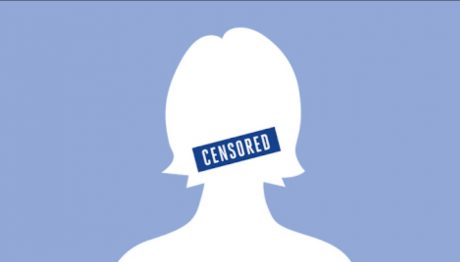
When Rappler CEO Maria Ressa announced what was supposed to be a momentous “partnering” of her “social news network” and Vera Files with social media giant Facebook to “fact check” Filipinos’ social media activities, she was probably expecting to be lauded as a “hero” in the world’s “fight” against disinformation. Instead, the opposite has happened. Ressa is now being derided as a presumptuous fool who is trying to fix a nonexistent problem.
The problem with the “fact checking” regime she and Vera Files personality Ellen Tordesillas cooked up is that it is a “solution” that does not address the root cause of the proliferation of “fake news” on Facebook. The root cause behind the spread of disinformation over Facebook is its users’ thinking faculties. The real problem is, Filipinos seem to lack an ability to separate fact from fantasy. This characteristic can be seen in an industry that predates the advent of social media — traditional Filipino showbiz.
In Filipino showbiz, actors and actresses routinely take on the personas of the fictitious characters they play on film and television and often use them for personal and political profit. Look no further than Lito Lapid, the father-and-son Revillas and Estradas, the late Fernando Poe Jr, Sharon Cuneta, and other screen personalities that went on to achieve political success in the Philippines. These politicians won on the back of information that had nothing to do with their qualifications to lead or represent Filipinos as government officials. Filipino voters evaluated them during elections on the basis of their fictitious veneers rather than doing the extra work of looking past those and deeper into their authentic character.
There is no top-down mechanism in Philippine elections to “fact check” how campaigning politicians pitch themselves to the electorate. The only mechanism available is a competition to earn the trust and confidence of the voters. The idea of censoring campaign messaging and paraphernalia is a ridiculous notion. The job of sorting out what is authentic and fake is left to the presumed intelligence of the voting public.
In the same manner, Facebook and other social media sites are similar platforms upon which various agents and the information they deliver compete for the attention of their users. It is a free market where every participant is expected to take personal responsibility for their actions and decisions. In short, the problem is therefore deeper than the nature of the platform. It has more to do with the quality of the participants in that market.
Regulators in free societies aim to maintain the dynamism of the free market by ensuring there is sufficient competition. This is why, in a lot of cases, monopolies need to be broken up and agents enjoying unfair advantages to compete, such as inside information, are investigated and sanctioned. In this light, it is easy to see that a Facebook that relies on “fact checking” to limit diversity runs counter to conventional regulation measures applied to free competitive environments.
More importantly, the argument that Filipinos can “opt out” of Facebook if they no longer like its policies is flawed. Facebook enjoys a monopolistic hold on Filipino eyeballs thanks to the “free data” carriage it enjoys with the Philippines’ biggest telcos and Internet Service Providers (ISPs). Thus, no real alternatives even exist outside of Facebook. This further highlights how deeply problematic the “fact checking” regime to be implemented by Ressa and Tordesillas on Facebook is. They will be essentially in control of a platform that Filipinos can’t refuse.
The only sensible option is for Facebook to ditch this ridiculous plan and focus more on regaining the trust of its users and of their governments by being more transparent. This could also involve either making the algorithm it employs to raise or bury content in their users’ timelines more open to scrutiny or decommissioning it altogether. That is a direction way opposite to the regime of pompous “fact checkers” it is currently going towards. It is a path to authoritarianism, patronage, and opaqueness — a position that is asking for more trouble for the already embattled social media giant.

No comments:
Post a Comment